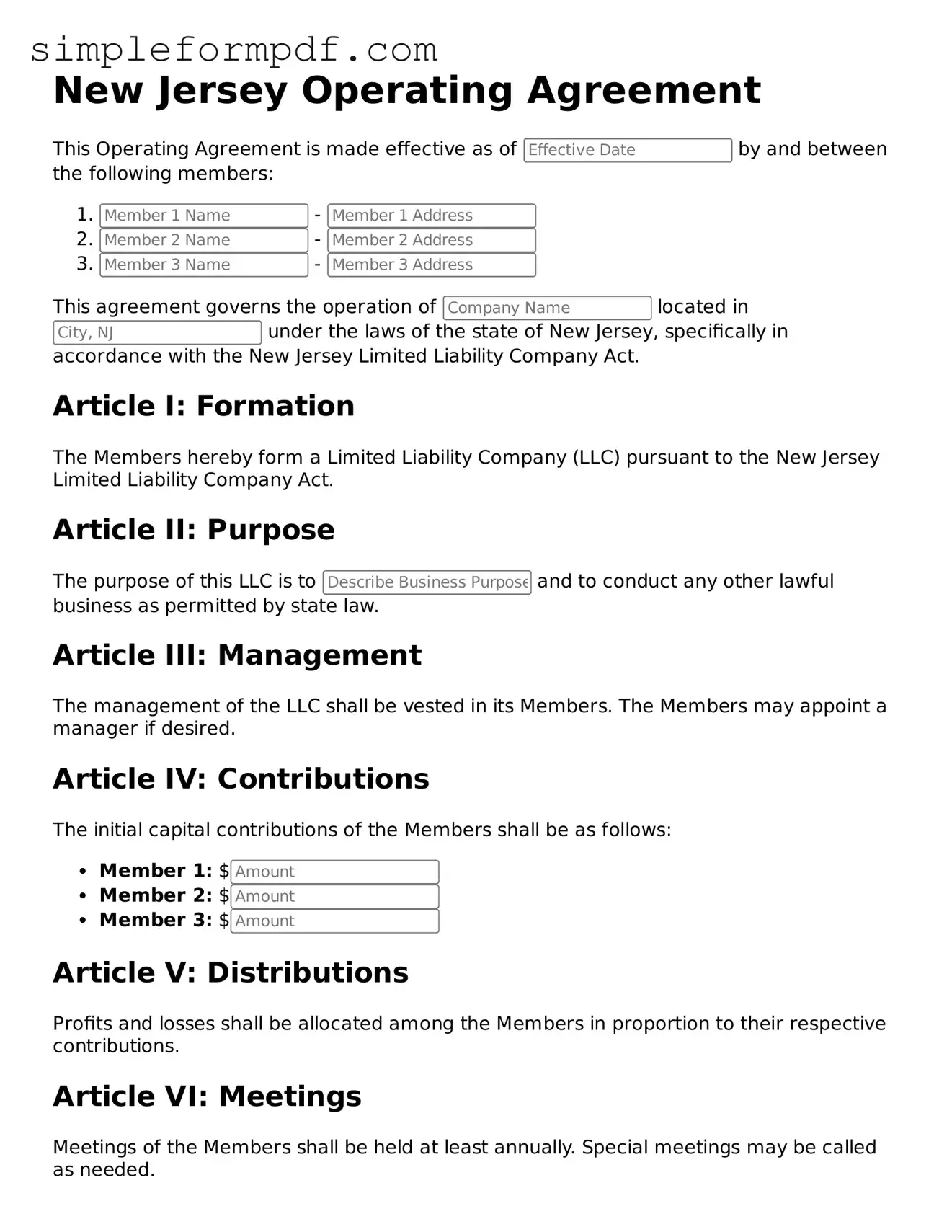Free Operating Agreement Form for the State of New Jersey
The New Jersey Operating Agreement form is a crucial document that outlines the management structure and operational procedures of a limited liability company (LLC) in the state. This agreement serves to define the roles and responsibilities of members, ensuring clarity and legal protection for all parties involved. To establish your LLC properly, consider filling out the form by clicking the button below.
Launch Editor

Free Operating Agreement Form for the State of New Jersey
Launch Editor
Need instant form completion?
Finish Operating Agreement online in just a few minutes.
Launch Editor
or
Download PDF
